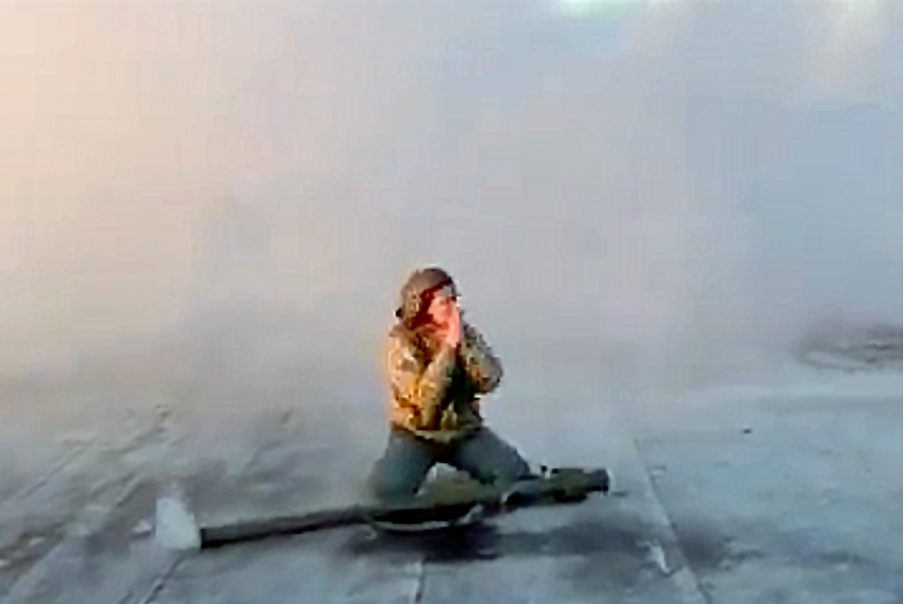Speaking on condition of anonymity, a senior US defense official told AFP journalists and other reporters that Washington’s delivery of long-range ATACMS to Kyiv perhaps should serve as a signal to Berlin that they should do the same with their oft-requested Taurus missiles.
The US State Department on Wednesday announced that it already has sent 190-mile-range missiles to Ukraine, in a shipment unrelated to the $61 billion package approved this week by Congress and the US president. France and the UK have also supplied Kyiv with SCALP/Storm Shadow missiles with almost the same range.
JOIN US ON TELEGRAM
Follow our coverage of the war on the @Kyivpost_official.
Despite pleas from President Volodymyr Zelensky’s administration for months, Germany has expressed reluctance to send Ukraine any of its Taurus missiles, which have a range of about 300 miles and, therefore capable of striking targets well within Russian territory.
“In terms of Taurus... this is a decision for Germany,” the Pentagon official told journalists Thursday. “But certainly the US provision of ATACMS, as well as prior decisions by the UK and France to provide long-range cruise missiles, we would certainly hope that this would be a factor,” the official said.
Politico: Signed US aid package to include Patriots, HIMARS, and air-to-air missiles for jets
According to a report published by Politico on Thursday, the newly passed $61 billion in US aid to Ukraine will include “Patriot air defense munitions, artillery ammunition, drones, counter-drone weapons, and air-to-air missiles to be fitted on fighter planes,” but much of that equipment will take a long time to deliver.

US Approves Antipersonnel Mines for Ukraine
The report quoted two unnamed officials who said Washington would sign as much as $6 billion in military contracts for the shipment. Details of these agreements could be released as soon as Friday when US Defense Secretary Lloyd Austin is scheduled to appear at a virtual meeting of the Ukraine Defense Contact Group (informally known as the Ramstein Group).
The Secretary’s description of the timing of the delivery of specific parts of that aid will be highly anticipated, as the Politico report said that some of that equipment, including newly procured “ammunition for High Mobility Artillery Rocket Systems [HIMARS] and National Advanced Surface-to-Air Missile Systems [NASMS], likely won’t arrive in Ukraine for several years, as the money is being allocated under the Ukraine Security Assistance Initiative.”
In one interpretation, these munitions would not come directly from US stockpiles, but from specific bespoke contracts to build the weapons for Ukraine.
Politico did not report on whether the US would continue sending HIMARS and NASMS ammunition from current DoD stocks on hand as it has been doing, with this package being a future augmentation, or this would replace those weapons deliveries with procurement lags involved.
Upcoming remarks by Austin are likely to clarify this important distinction since the latter incarnation would mean significant delays in the delivery of the artillery and air defenses Kyiv has clamored for and needs to stave off Russian advances.
Politico quoted the Pentagon acquisition chief, William LaPlante who this week remarked: “The Russians are going to … three shifts a day 24/7… Depending on whom you believe, they’re at 6 to 7 percent of their GDP [on military spending], we’re at about 3.2 percent.”
In Doha, Ukraine addresses the repatriation of at least 561 children
The Ukrainian Parliamentary Commissioner for Human Rights has provided negotiators in Qatar with a list of 561 Ukrainian children whom Russian forces have illegally taken, the official posted on social media.
Qatar, which recently has facilitated numerous negotiations between Western countries and the Russian-Iranian alliance, has been hosting talks about the return of displaced children caught up in the full-scale Russian invasion of Ukraine.
The Ukrainian commissioner, Dmytro Lubinets, has been involved over the past two days in talks with Qatari representatives and stressed that there have been no direct negotiations between Moscow and Kyiv.
The first group of Ukrainian children is expected to return home soon, as a result of these conferences.
Noting that many Ukrainian orphans had been abducted, a subject not yet addressed in the talks, Lubinets said, “We emphasized that legally there is no difference between biological parents and official adoptive parents or guardians. Therefore, Russia is obliged to return the children, regardless of their status… Qatar has also agreed to accept the first list of orphans and children deprived of parental care and to work on the issue of their return to Ukraine. I should note that we have information that there may be more than 3,600 such children.”
Europe formalizes Russia’s “undemocratic presidential elections” as illegitimate
The directly elected legislative body of the European Union, the European Parliament, adopted a resolution on Thursday declaring that the March vote in Russia, and its occupied districts in Ukraine, that reinstated Vladimir Putin as the federation’s president did not meet the basic standards for a free democratic election.
At their congress in Strasbourg, Austria, the Parliament adopted a resolution “On Russia’s undemocratic presidential elections and their illegitimate extension to the occupied territories,” specifying that the election was “neither free nor fair,” by a vote of 493-11, with 18 abstaining. The resolution means that the EU does not officially recognize Putin as Russia’s president, and it called on the international community to declare the same.
“As it was held in the illegally occupied territories of Ukraine, and, even within Russia, was neither free nor fair, did not meet the basic international electoral standards, and thus lacked democratic legitimacy,” the resolution says. It was “held in a severely restricted environment of systemic and grave repression and during the Russian Federation’s illegal war of aggression against Ukraine.”
The resolution continues that, “the European Parliament urges to limit relations with Putin to matters necessary for regional peace as well as humanitarian and human rights purposes, for example prisoner exchanges, the return of deported children to Ukraine or calling on the release of political prisoners.”
🕊️Slovak MEP Miroslav Radačovský released a dove during a debate in the European Parliament. pic.twitter.com/Z0EbE9PvSq
— NoComment (@nocomment) April 24, 2024
You can also highlight the text and press Ctrl + Enter






